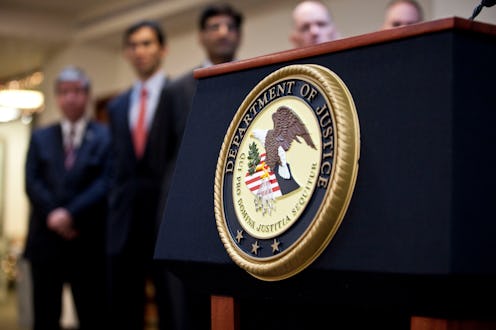News
Read The DoJ's Immigration Order Letter In Full

Controversy continues over Donald Trump's executive order that bans all refugees and refuses entry to immigrants and non-immigrants from seven Muslim-majority countries. The Department of Justice head stated that the DoJ will not defend the order, and acting Attorney General Sally Yates' letter about Trump's immigration order gives insight into exactly why.
The letter states that Yates believes it is her responsibility to make sure the Justice Department's position on the executive order is legally defensible and is informed by "our best view of what the law is after consideration of all the facts." While she said that the Office of Legal Counsel reviews an order to see if its lawful on it's face, it does not take into context what the administration or its surrogates have previously said. That, she believes, is where the Department of Justice comes in.
If you'd like it summed up, basically the letter says that Yates is taking into consideration everything Trump has said about Muslims, immigration, refugees, etc., and is using that as context to determine the legality of the executive order he issued temporarily banning refugees and immigrants — and she doesn't think it's going to pan out as "legal," so her department won't defend it. But if you'd like to read the letter in full to see exactly what she said, here it is in full.
On January 27, 2017, the President signed an Executive Order regarding immigrants and refugees from certain Muslim-majority countries. The order has now been challenged in a number of jurisdictions. As the Acting Attorney General, it is my ultimate responsibility to determine the position of the Department of Justice in these actions.
My role is different from that of the Office of Legal Counsel (OLC), which, through administrations of both parties, has reviewed Executive Orders for form and legality before they are issued. OLC’s review is limited to the narrow question of whether, in OLC’s view, a proposed Executive Order is lawful on its face and properly drafted. Its review does not take account of statements made by an administration or it surrogates close in time to the issuance of an Executive Order that may bear on the order’s purpose. And importantly, it does not address whether any policy choice embodied in an Executive Order is wise or just.
Similarly, in litigation, DOJ Civil Division lawyers are charged with advancing reasonable legal arguments that can be made supporting an Executive Order. But my role as leader of this institution is different and broader. My responsibility is to ensure that the position of the Department of Justice is not only legally defensible, but is informed by our best view of what the law is after consideration of all the facts. In addition, I am responsible for ensuring that the positions we take in court remain consistent with this institution’s solemn obligation to always seek justice and stand for what is right. At present, I am not convinced that the defense of the Executive Order is consistent with these responsibilities nor am I convinced that the Executive Order is lawful.
Consequently, for as long as I am the Acting Attorney General, the Department of Justice will not present arguments in defense of the Executive Order, unless and until I become convinced that it is appropriate to do so.
Trump will likely use this as reason to push for Sen. Jeff Sessions to be confirmed as attorney general as quickly as he can. Yates could no longer be the acting head of the Department of Justice sometime this week. But she made a stand while she still could.